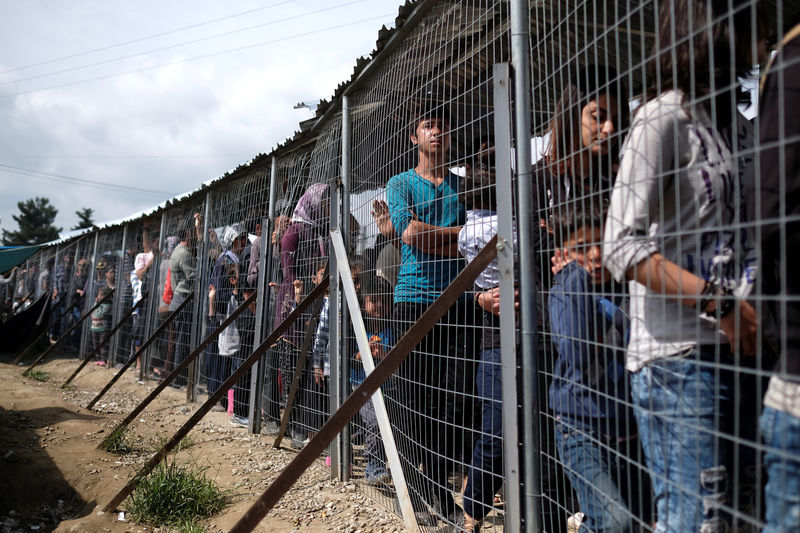STRASBOURG (Reuters) - Urgent measures are need to address overcrowding and poor living conditions in refugee and migrant camps in Greece, Europe's top rights watchdog warned on Wednesday.
The Council of Europe, which brings together 47 countries, said some facilities were "sub-standard" and able to provide no more than the most basic needs such as food, hygiene products and blankets.
The report echoes warnings by other rights groups and aid agencies who say Greece has been unable to care properly for the more than 800,000 people reaching its shores in the last year, fleeing wars or poverty in the Middle East and Africa.
The Council described dire living conditions in several sites visited on a March 7-11 trip, just before the European Union and Turkey reached a deal that reduced arrivals but increased the number of people held in detention awaiting asylum decisions or deportation.
It said in its report that people who reached Greece were locked away in violation of international human rights standards and lacked legal access.
At Greece's Nea Kavala temporary transit camp, people were left burning trash to keep warm and sleeping in mud-soaked tents, according to the report.
The Council called for the closure of a makeshift camp in Idomeni, where some 10,000 people have been stranded en route to northern Europe due to the closure of Macedonia's border.
Germany has taken in most of the 1.3 million refugees and migrants who reached Europe across the Mediterranean in the past year, triggering bitter disputes among the 28 EU member states on how to handle the influx.
Europe's deal with Turkey last month gave its leaders some breathing space but has come under pressure since Prime Minister Ahmet Davutoglu, one of the sponsors of the accord, stepped down.
The morality and legality of the deal has been challenged by human rights groups, however, and a provision to grant Turkish citizens visa-free travel to Europe in exchange for Ankara's help remains politically contentious.
In a separate report, a trio of European Parliamentarians on Tuesday described the poor conditions faced by people who have been returned to Turkey under the deal.
"We have seen how the migration policies imposed by the European Union have terrible consequences on the lives of thousands of people," said Cornelia Ernst, a German member of the European Parliament and a co-author of that report.
"Turkey has been hired as a deportation agency, putting into practice the migration policies designed in Brussels."
The left-wing deputies said on their May 2-4 visit to Turkey they had met people who complained of not being able to claim asylum in Europe, which would run counter to international humanitarian law.

They also described poor detention conditions, confiscation of private property and widespread difficulties in getting access to legal help or information, among other issues.